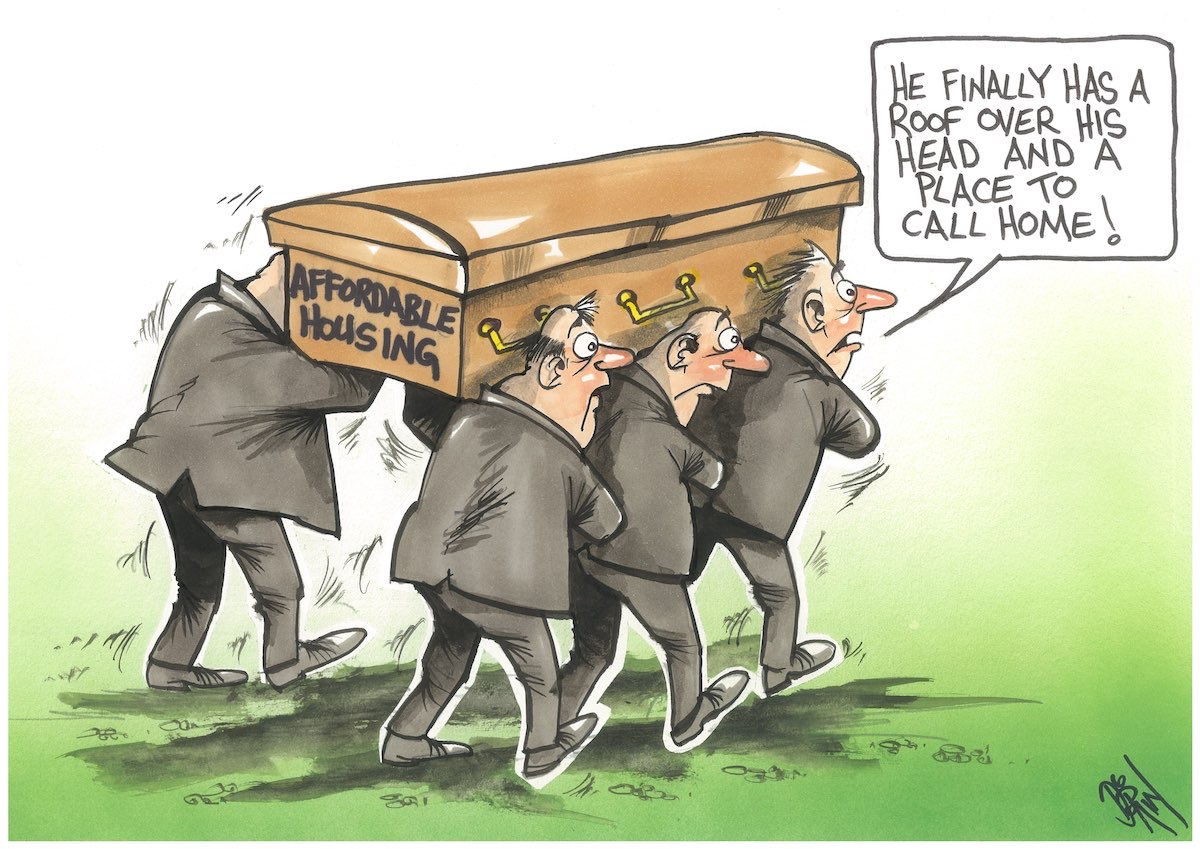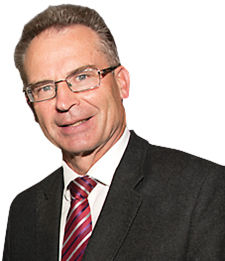
“The Productivity Commission reports that, in the five years to 2021-22, Tasmania’s capital expenditure on public housing was $338.7 million, while ACT’s was $6.6 million,” writes columnist JON STANHOPE.
I CANNOT believe members of the ACT government are not asking themselves how much longer Labor and Greens-voting residents of Canberra will tolerate the government’s response to the needs and welfare of the poor or otherwise disadvantaged residents of this city.

That’s the principal question arising from the just released Productivity Commission’s report on housing and homelessness.
“It is alarming and unacceptable that thousands of ACT residents are experiencing severe financial and emotional stress due to the ACT government’s lack of responsive action on housing availability and affordability,” is how the ACT Council of Social Service (ACTCOSS) responded to the findings of the Productivity Commission’s findings.
The Productivity Commission’s Report on Government Services (RoGS) highlighted that:
- In the ACT priority public housing applicants are waiting an average of 337 days for a home.
- The average wait time for standard public housing has blown out to almost five years.
- The ACT remains the jurisdiction with the highest rate of lower income private renters experiencing rental stress (more than 60 per cent).
- There is currently the lowest number of public housing dwellings in the ACT in 10 years.
- The average turnaround time for vacant stock in public housing has nearly doubled over the last year from 50 to 90 days.
“The ACT remains the most expensive Australian city for people on low incomes to rent a house or a unit and… no private rental property in the ACT was affordable for a single person on Jobseeker or the Disability Support Pension,” said ACTCOSS.
“Less than three per cent of private rentals were suitable for a household living on the minimum wage without placing them in housing stress.
“ACT homeless services report the highest rates of persistent homelessness in the nation with 43 per cent of service users experiencing homelessness for at least seven months over the last two years.
“This number is even higher for Aboriginal and Torres Strait Islander people with 47 per cent of service users experiencing persistent homelessness.”
ACTCOSS concluded, unsurprisingly, that the RoGS data demonstrated that the ACT government’s housing and homelessness policies have failed to meet the housing needs of Canberrans on low incomes – including many in full-time work. Any other conclusion would not, of course, be credible.
It is of major concern that the current crisis in housing and homelessness in Canberra is almost entirely a direct consequence of decisions and actions deliberately taken by the ACT government and which the chief minister, the Greens leader and responsible ministers must have known, when the relevant decisions were taken, would lead to the outcomes reported by the Productivity Commission.
A prime example of a decision actively taken by Labor and Greens ministers that has fuelled the current crisis is the reduction in the number of units of public housing in Canberra, over the 10 years from 2012 to 2022, from 10,956 (10,738 occupied) to 10,744 (10,302 occupied) despite an increase in the ACT population in that period of in the order of 82,000 people.
That the reduction in public housing is, in the main, attributable to the sale of hundreds, if not thousands, of units of housing on Northbourne Avenue, in Red Hill, Griffith and elsewhere in order to attract Commonwealth funding for light rail is a clear illustration of the government’s apparent priorities and its apparent disregard for those in the Canberra community who are either homeless or have been shut out of the housing market.
Table 18A.1 in the RoGS report provides a stark insight into the ACT government’s attitude to social housing and battling families. It reveals, among other things, that in 2021-22 the ACT government pocketed $32 million more from the proceeds of sales of public housing than it spent on the purchase or construction of replacement housing stock.
It is also noted that in 2017-18 the ACT had gained $3.1 million more from the proceeds of sales of public housing than it expended on new or additional housing in that year.
A further example of the differing approach or attitude of the ACT government and other jurisdictions to public housing can be deduced by comparing their respective levels of capital expenditure on social housing.
It is revealing to compare the ACT with, say, Tasmania, the state with a population not dissimilar to the ACT’s. The Productivity Commission reports that in the five year period 2017-18 to 2021-22 Tasmania’s capital expenditure on the purchase or construction of public housing was $338.7 million while in the ACT the expenditure was $6.6 million.
Also negatively affecting the supply of social housing in the ACT is the conscious decision of the ACT government, some years ago, to withdraw both financial support and access to affordable land to the ACT’s then major provider of community housing, namely CHC Community Housing, thus denying it the capacity to continue to deliver, as it was until the assistance was withdrawn, more than one hundred extra units of community housing each and every year.
It is no surprise then that the Productivity Commission reports that in 2022 while there were 737 households in community housing in the ACT there were 557 applicants on the waiting list. It further reported that in 2017 there were in fact 774 households in community housing, ie 38 more than in 2022.
Jon Stanhope was ACT chief minister from 2001 to 2011 and the only chief minister to have governed with a majority in the Assembly. Read more of his columns on citynews.com.au
Who can be trusted?
In a world of spin and confusion, there’s never been a more important time to support independent journalism in Canberra.
If you trust our work online and want to enforce the power of independent voices, I invite you to make a small contribution.
Every dollar of support is invested back into our journalism to help keep citynews.com.au strong and free.
Thank you,
Ian Meikle, editor








Leave a Reply